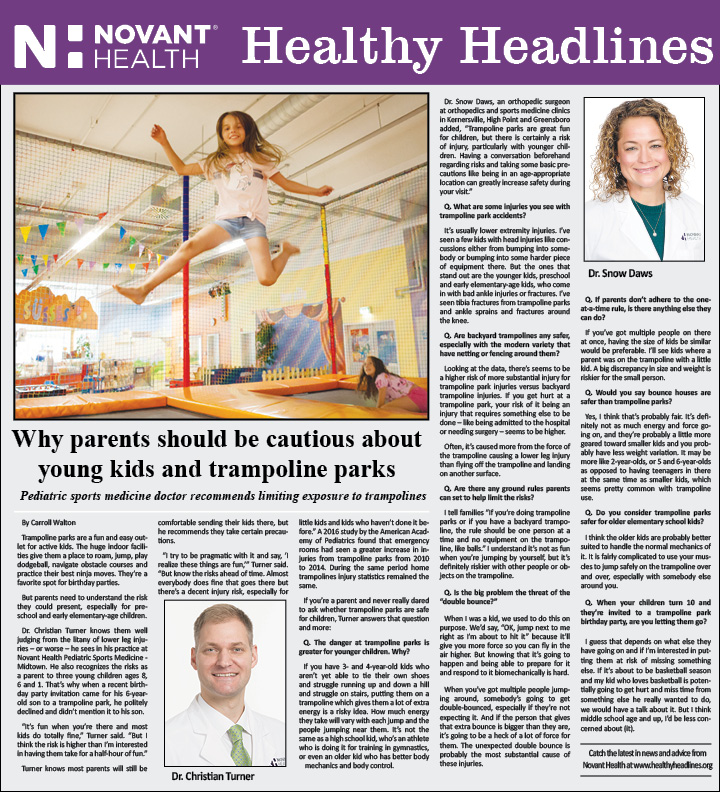 Visitors, patients, and staff at Novant Health Kernersville Medical Center (KMC) will now have the chance to feel more comfort when greeted by a four-legged friend on Wednesday afternoons.
Visitors, patients, and staff at Novant Health Kernersville Medical Center (KMC) will now have the chance to feel more comfort when greeted by a four-legged friend on Wednesday afternoons.
On Wednesdays from 10 a.m. – 12 noon, with their first day having been last week, volunteer Jerry Grubbs and his therapy dog, Rusty, a six-year-old golden retriever, will have the chance to help visitors, patients, and staff feel a sense of comfort and calm as they walk into the hospital, wait in the lobby to see a doctor, or be visited in their own room.
According to Susan Parks, manager of volunteer services with Novant Health, PMC (Presbyterian Medical Center), PMC has been doing pet therapy for over 20 years, but they are starting the Pet Greeter program across all of the Novant Health hospitals.
“Pet therapy volunteers provide visitation for patients, guests and Novant Health team members on patient floors, in patient rooms and various departments throughout the hospital,” said Parks.
Parks shared that they got the idea from the Cleveland Clinic.
“Because of our affiliation/partnership with the Cleveland Clinic, several of our leaders visited the clinic. They learned of a pet greet program having dogs as greeters stationed in their lobby and loved it. It is in alignment with our vision of creating a remarkable patient and guest experience,” she said. “We recognize that not all guests are animal lovers so we have our greeters stationed in areas that allow folks not wanting to pet or engage with the dog to walk around him/her.”
Grubbs shared that Rusty has been a therapy dog for four-and-a-half years, having gotten his certification just before he turned two-years-old.
Grubbs decided to turn Rusty into a therapy dog having seen how helpful they can be to patients in hospitals.
“My wife’s father was in the hospital and he got a visit from a therapy dog. He talked about that until he passed away, and I thought it would be a good thing to do,” he said.
Having had a Golden Retriever/Collie mix, named Junior, previous to getting Rusty, Grubbs knew they were great dogs and decided to get another Golden Retriever, though Rusty is full bred. Junior passed away at the age of 18.
“Rusty has a good personality and is a great dog, so coming up to getting him, we thought it would be good to do (therapy dog training) with him,” Grubbs shared, noting that he has always enjoyed volunteering to help people. “We just enjoy doing this with the dogs and meeting people.”
Grubbs noted that he retired as a district fire chief and now volunteers at Beeson’s Volunteer Fire Department.
Grubbs and Rusty aren’t new to visiting hospitals as they visit two other hospitals throughout the month, giving others their time and offering comfort.
As a therapy dog, Rusty does several things.
“He goes around and greets people in the lobby and people can come up and meet him,” he said.
Grubbs explained that when visiting with children, who are often in need or want of exercising some energy, Rusty will play ball or play hide-and-seek with a toy or ball.
“If they can’t get up or aren’t mobile, he will visit with them,” he stated. “We put a sheet down, and he can jump up in the bed with someone or sit up and they can pet him.”
Grubbs shared one story of a young boy who had a broken neck that wasn’t able to move much and so, as to not cause further harm, Rusty sat in a chair next to the bed and put his paws and head on the boy’s bed so that he could pet him.
Grubbs noted that Rusty is certified through Therapy Dog International (TDI) and shared that in order to get certified, he had to undergo several months of training and take a test that included 17 stations, twice since both he and his wife are handlers.
“He has to be trained to go up to all types of people and equipment. He is trained not to eat off of the floor and to ignore food, and he is trained not to lick those that do not want to be licked and because people in hospitals often have IVs,” he said. “He has to behave and be polite when visiting somebody’s room.”
Grubbs laughed as he shared that one thing that Rusty really enjoys is being petted.
“He will go from one person to the other and it doesn’t matter who you are, he just loves to be petted,” he said.
Through their volunteer work, Grubbs shared that they have met a lot of people.
“It’s a good way to meet people. There are a lot of good stories that we come across, and from time-to-time you really know you have made someone’s day,” he said. “It’s kind of a hobby that we enjoy doing. I wish we could do it more, but there are only so many hours in the day.”
Parks noted the many benefits therapy dogs offer to patients.
“Dogs have forever been called, ‘man’s best friend,’ providing companionship to people in need. In hospitals, they provide moments of companionship, joy, comfort, distraction, and they are soothing to patients. But they are not just a benefit to patients. They are also a benefit to family members and staff at all levels, from our doctors and surgeons on down.”
Parks noted that the pet therapy volunteers visit many different areas of the hospital.
Parks urges anyone interested in being a volunteer with their therapy dog, to contact Novant Health.
“Just call the Volunteer Services Department here at Presbyterian Medical Center or any Novant Health hospital for more information,” she said. “Therapy dogs are in many places, like public libraries and schools, but being in the hospital is the most demanding place for dogs (hence the special training here). Some dogs can’t handle the smells, the noises, the elevators. It takes a special dog to be a TDI dog. It takes a remarkable dog to be a hospital pet therapy dog.”
Rusty and Grubbs are at Novant Health KMC on Wednesdays from 10 a.m. to 12 p.m.
For more information, contact Novant Health KMC at (336) 564-4000 or visit www.novanthealth.org.
Wagging Wednesdays
Previous post: Arnold King – Long Leaf Pine Award
Next post: Carol Hauser Retires









